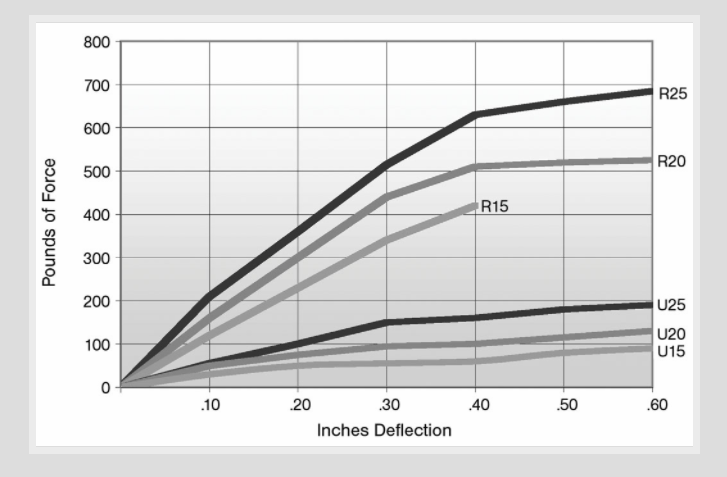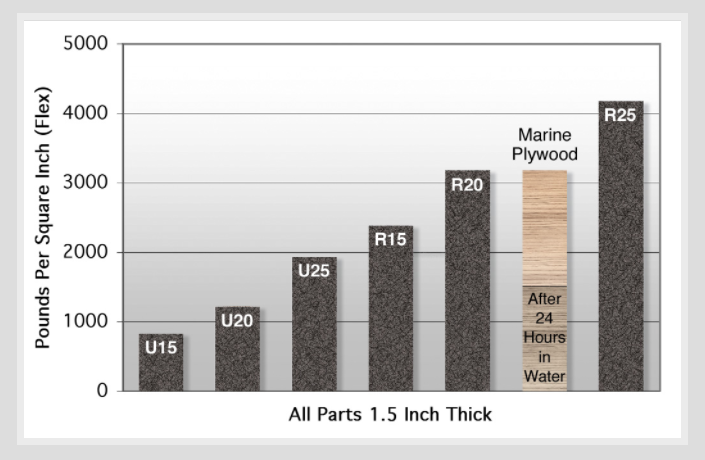Enhanced TDS
Knowde-enriched technical product data sheet
Identification & Functionality
- Core Type
- Composite Materials Functions
- Technologies
- Product Families
Features & Benefits
- Materials Features
- Advantages
- Excellent Strength-to-Weight ratio
- Foam Reinforced with fiberglass increases mechanical properties
- Lightweight - 30% Lighter Than Marine Plywood
- Closed Cell Cross-Linked Polymer Foam will not absorb water
- Will Not Rot...Excellent Replacement for Wood
Applications & Uses
- Markets
- Applications
- Composites End Use
- Composites Processing Methods
- Applications
- Boat Transom
- Boat Stringers
- Boat Bulkheads
- Boat Decking
- Boat Structural Fabrication
- Ice Decking
- Deerblind Flooring
- Substation Houses
Properties
- Typical Properties
Value Units Test Method / Conditions "R" Factor (for 1" (x2-2")) 2.78-2.50 - - Coefficient of Linear Expansion 4 105in/in/°F ASTM D696 Compressive Modulus 22300 psi - Compressive Strength 890 psi - Density 208 - 288 kg/m³ - Dielectric Constant 1.3 - ASTM D1673 Dissipation Factor (at 20°C and 1 meg) 0.0055 - - Flexural Modulus 36200 psi - Flexural Strength 1170 psi - K" Factor Thermal Conductivity 0.36-0.40 BTU/ft2/hr/°F/in ASTM D2326 Max Service Temperature 93 °C - Shear Modulus 4300 psi - Shear Strength 350 psi - Tensile Modulus 18000 psi - Tensile Strength 640 psi - Water Absorption (by vol. (96 hrs)) 0.4 % ASTM D2842
Technical Details & Test Data
- Flex Test Chart

U20 -Unreinforced 20 lb/ft3 (320 kg/m3) Material
Tests were performed on a 17" (431.8 mm) long and 1-1/2" (38.1 mm) thick KAY‑CEL samples with the above physical properties.
The chart above shows how Fiberglass reinforcement increases the strength of KAY‑CEL CORE by 300%.
- Water Absorption Test

The chart above shows how marine plywood loses 60% of its strength after being submerged for 24 hours
Storage & Handling
- Handling Information
- Store Kay-Cel Core material indoors or protect from sunlight.
- Can be cut with normal woodworking tools.
- Wear dust mask, eye protection, and gloves when cutting.
- Can be use with a wide variety of resins.
- Do Not burn material.
- Best practices:
- Maintain dry, clean surface for maximum bonding.
- Pre-wet boards with resin before applying fiberglass.
- Remove any release agensts or shiny spots before bonding.